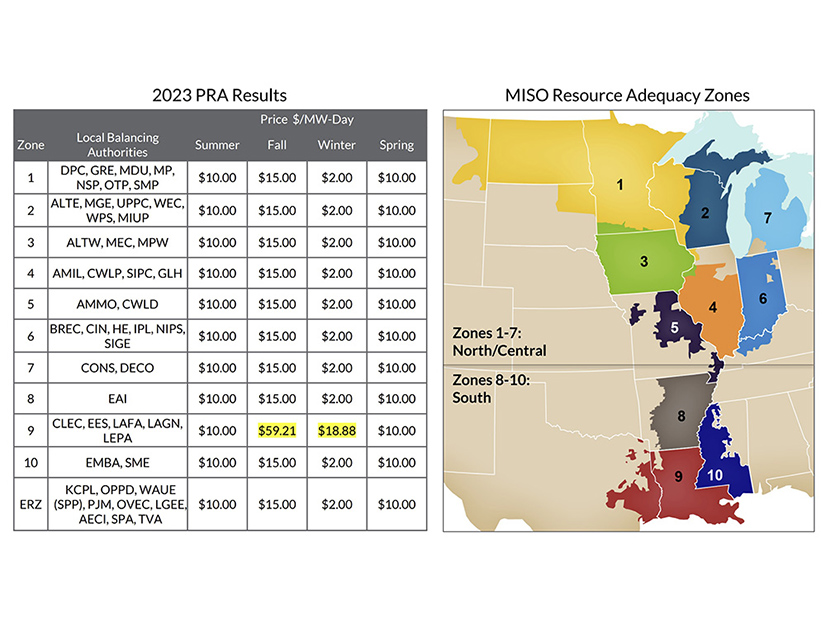CARMEL, Ind. — In the wake of MISO’s first seasonal capacity auction, members have asked MISO to improve its generator outage rules, its preliminary data sharing and the registry tool used to track capacity.
MISO surveyed its members on what improvements it should prioritize before the 2024/25 Planning Resource Auction (PRA) in the spring. This week, the RTO said members had concerns over its 31-day outage threshold and said abiding by the rule is time-consuming and could produce a less reliable fleet. They also asked MISO to share preliminary PRA data sooner and better explain how it derives estimated capacity values. Finally, members singled out MISO’s nonpublic load forecast and resource registry for improvements, saying the current tool lacks a consistent naming convention, requires duplicative data entry of market participants and should have a dispute option for load and capacity values.
Stakeholders a year ago first requested better and more timely preliminary data ahead of the auction after the 2022/23 capacity auction laid bare a 1.2-GW shortfall across the Midwest region. (See “Stakeholders Ask for Data Improvements,” MISO Promises Stakeholder Discussions on Capacity Auction Reform.)
At a July 11 Resource Adequacy Subcommittee, Independent Market Monitor David Patton said he shared members’ concerns over the new 31-day limit on nonexempt unit outages in a season.
“One of our conclusions from administering mitigation and monitoring the market is it’s not an optimal structure,” Patton said. “When you have the 31-day grace period, it causes generators to move outages into two seasons.”
Patton said it’s “not great” to have generators avoiding penalties by nudging outage schedules so they straddle both spring and summer, where generator availability becomes critical. He underlined the drawback to the new outage rules in last month’s State of the Market report. (See MISO IMM Zeroes in on Tx Congestion in State of the Market Report.)
“We’d like outages to be taken based on when they’re the least costly to take and not be influenced by an arbitrary penalty structure,” he said.
Patton suggested MISO adopt more gradual penalties that account for the number of days a generator is unavailable so generator operators aren’t abruptly facing penalties at the 31-day mark that must be reflected in capacity offers.
Consumers Energy’s Erika Ward said she worried that generators will begin delaying maintenance to avoid outage penalties, risking catastrophic failures. But Patton said even without a capacity market, generator owners must balance missing out on payments versus undergoing necessary maintenance.
Executive Director of Market and Grid Strategy Zak Joundi said MISO doesn’t yet have a timeline on how it might adjust its outage limit.




